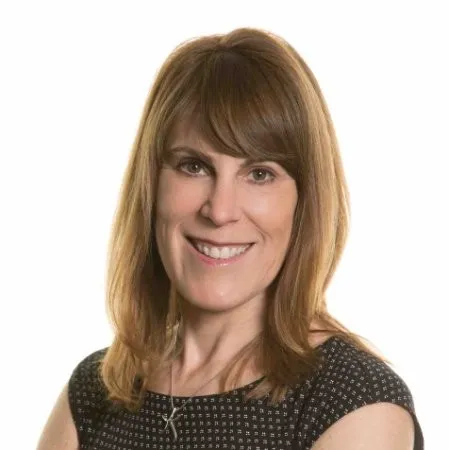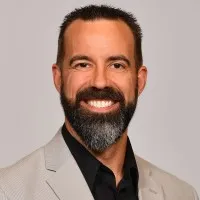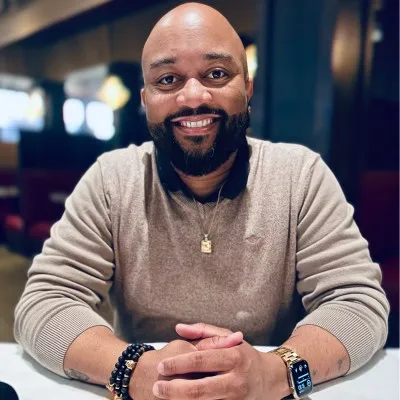We kicked off the PreSales Leadership Collective Executive Summit with a powerful session on how the role of PreSales has shifted and how our role is driving innovation. Our speakers were:
Shannon Stark, Managing Director of Solutions Consulting at Google
Channing Ferrer, VP of Sales Operations and Strategy at Hubspot
Doug Ito, SVP of Global Customer Solutions at Okta
And we had Al Beretta from Reprise as our panel host.
Where Change is Happening in PreSales
Shannon notes that this has been a time of dramatic changes at Google, and the changes are continuing to happen in real time - meaning her team is always operating in the “messy middle” these days. And these changes (for her team, mostly around customer privacy) have been inspiring the PreSales organization to embrace innovation in how they sell and how they help customers achieve their goals. PreSales is the tip of the spear there.
For Doug, who has been in PreSales for almost twenty years, he’s noticed that buyers are so much more informed now. They have gone from having 10% of the information they need to having 60% of it when they talk to sales for the first time. That means we can’t start at ground zero when the customer is already at step six.
Channing is seeing three main changes in the way buyers engage. First, they’re more educated, and they’re getting even more educated every year. This increase in knowledge has led them to want to do and learn more on their own without talking to a human. Some don’t ever want to talk to a person, in fact. Second, buyers are now much more technical - they have a strong technical background, and ask detailed questions really quickly. PreSales need to adapt to this. At Hubspot, they create a lot of automation to help with that, like bots and tech resources that the sales team can leverage and/or the customer can access. Third is the increased immediacy of PreSales - buyers don’t want to wait around for a week for a call.
The New Core Capabilities
While the traditional sales cycle does still exist, it’s no longer linear. Buyers are jumping in and out of the conversation at different points. That means discovery is still important, especially for positioning value, but now buyers sometimes want to jump right into implementation.
That focus on implementation has also shifted what’s important in a sales engineer. Buyers are more pragmatic now, with an increased urgency. Hubspot has found a sweet spot by determining that PreSales should be more hands-on with their bigger customers while increasing automation for smaller companies.
Shannon has found that there’s no better group to drive retention and expansion than PreSales. Sales engineers understand both the product and customer needs deeply, and they bring all of that to the table when engaging with a new or existing customer. The customer sees more value, and the organization sees more adoption and retention.
KPIs and Success Metrics
Everyone agreed that Sales Engineers hate time tracking, which can make finding KPIs a bit tricky. Knowing that the most valuable time Sales Engineers spend is always being in front of a customer and looking for ways to optimize that is critical, especially when you can minimize distractions as well.
At Hubspot, Channing has implemented a threshold for deal value when bringing in Sales Engineers, and that’s helped them stay focused on keeping Sales Engineers and the PreSales organization on opportunities where they bring the most value.
Getting a Seat at the Executive Table
Your PreSales team needs an executive champion - someone who believes in PreSales and will speak up for you. Either find one who already exists or make one.
One way to get a champion on board is to learn how to speak to different people around the company - when going to executives, you need to simplify and bottom-line things because they’re busy. Ironically, Doug notes, we do this very well for customers, but we need to learn how to do the same thing internally too.
PreSales at the Forefront of Innovation
Channing says that PreSales is not talked about much in relation to the rise of product-led growth, even though he thinks we’re actually right in the middle of it.
And he’s explored this at Hubspot as they rolled out their PLG motion. They realized that having a sales rep call a free user and try to convert them to a buyer didn't work: the user didn’t like it and it didn’t convert for reps. Instead, they helped users learn about products in a reactive way, then they can choose to purchase on their own or can raise their hand to talk to a person, and that’s worked well.
Shannon urges leaders to think of PreSales differently: there are so many experiments you can run now when you think out of the box. The core value is building trust with customers, and then you apply that to different potential uses. Innovation needs to be not about just finding what’s cool, but what actually drives revenue or saves time. Shannon has “Stark Tank” every year to surface these ideas at Google. Also, she notes the importance of celebrating failures as well because that’s a key part of innovation.
There’s so much knowledge and skill in the PreSales organization, especially institutional knowledge. Letting that bloom naturally - allowing Sales Engineers to work directly with the field, product marketing, etc., means it’s not just Sales Engineering leaders but also the Sales Engineers themselves creating a strong brand within the company. This doesn’t happen overnight, but little by little.
The Future of PreSales
In Shannon’s current org structure, she sees specialization even more important in the future as the product landscape becomes bigger and messier. It’s always a pendulum so someday it will swing back, but right now, in a bumpy time, specialization rules. She’s focused on building those skillsets for her teams.
Doug says that nobody wins alone - it's a team sport, especially for enterprises. So the question becomes how to avoid silos as you grow? Keeping that team ethos at the forefront as you grow is vital, because you’ll need all eyes on the ball to see holes and gaps as they emerge.
Channing sees automation growing even more. It plays in all areas, and there’s tons of new technology coming out to help build it into daily routines and optimize for time (which we never have enough of). He also predicts tighter alignment and continued integration with the product team - PLG will have a growing role in that as well. And he sees specialization becoming more important, creating lots of opportunities.
We kicked off the PreSales Leadership Collective Executive Summit with a powerful session on how the role of PreSales has shifted and how our role is driving innovation. Our speakers were:
Shannon Stark, Managing Director of Solutions Consulting at Google
Channing Ferrer, VP of Sales Operations and Strategy at Hubspot
Doug Ito, SVP of Global Customer Solutions at Okta
And we had Al Beretta from Reprise as our panel host.
Where Change is Happening in PreSales
Shannon notes that this has been a time of dramatic changes at Google, and the changes are continuing to happen in real time - meaning her team is always operating in the “messy middle” these days. And these changes (for her team, mostly around customer privacy) have been inspiring the PreSales organization to embrace innovation in how they sell and how they help customers achieve their goals. PreSales is the tip of the spear there.
For Doug, who has been in PreSales for almost twenty years, he’s noticed that buyers are so much more informed now. They have gone from having 10% of the information they need to having 60% of it when they talk to sales for the first time. That means we can’t start at ground zero when the customer is already at step six.
Channing is seeing three main changes in the way buyers engage. First, they’re more educated, and they’re getting even more educated every year. This increase in knowledge has led them to want to do and learn more on their own without talking to a human. Some don’t ever want to talk to a person, in fact. Second, buyers are now much more technical - they have a strong technical background, and ask detailed questions really quickly. PreSales need to adapt to this. At Hubspot, they create a lot of automation to help with that, like bots and tech resources that the sales team can leverage and/or the customer can access. Third is the increased immediacy of PreSales - buyers don’t want to wait around for a week for a call.
The New Core Capabilities
While the traditional sales cycle does still exist, it’s no longer linear. Buyers are jumping in and out of the conversation at different points. That means discovery is still important, especially for positioning value, but now buyers sometimes want to jump right into implementation.
That focus on implementation has also shifted what’s important in a sales engineer. Buyers are more pragmatic now, with an increased urgency. Hubspot has found a sweet spot by determining that PreSales should be more hands-on with their bigger customers while increasing automation for smaller companies.
Shannon has found that there’s no better group to drive retention and expansion than PreSales. Sales engineers understand both the product and customer needs deeply, and they bring all of that to the table when engaging with a new or existing customer. The customer sees more value, and the organization sees more adoption and retention.
KPIs and Success Metrics
Everyone agreed that Sales Engineers hate time tracking, which can make finding KPIs a bit tricky. Knowing that the most valuable time Sales Engineers spend is always being in front of a customer and looking for ways to optimize that is critical, especially when you can minimize distractions as well.
At Hubspot, Channing has implemented a threshold for deal value when bringing in Sales Engineers, and that’s helped them stay focused on keeping Sales Engineers and the PreSales organization on opportunities where they bring the most value.
Getting a Seat at the Executive Table
Your PreSales team needs an executive champion - someone who believes in PreSales and will speak up for you. Either find one who already exists or make one.
One way to get a champion on board is to learn how to speak to different people around the company - when going to executives, you need to simplify and bottom-line things because they’re busy. Ironically, Doug notes, we do this very well for customers, but we need to learn how to do the same thing internally too.
PreSales at the Forefront of Innovation
Channing says that PreSales is not talked about much in relation to the rise of product-led growth, even though he thinks we’re actually right in the middle of it.
And he’s explored this at Hubspot as they rolled out their PLG motion. They realized that having a sales rep call a free user and try to convert them to a buyer didn't work: the user didn’t like it and it didn’t convert for reps. Instead, they helped users learn about products in a reactive way, then they can choose to purchase on their own or can raise their hand to talk to a person, and that’s worked well.
Shannon urges leaders to think of PreSales differently: there are so many experiments you can run now when you think out of the box. The core value is building trust with customers, and then you apply that to different potential uses. Innovation needs to be not about just finding what’s cool, but what actually drives revenue or saves time. Shannon has “Stark Tank” every year to surface these ideas at Google. Also, she notes the importance of celebrating failures as well because that’s a key part of innovation.
There’s so much knowledge and skill in the PreSales organization, especially institutional knowledge. Letting that bloom naturally - allowing Sales Engineers to work directly with the field, product marketing, etc., means it’s not just Sales Engineering leaders but also the Sales Engineers themselves creating a strong brand within the company. This doesn’t happen overnight, but little by little.
The Future of PreSales
In Shannon’s current org structure, she sees specialization even more important in the future as the product landscape becomes bigger and messier. It’s always a pendulum so someday it will swing back, but right now, in a bumpy time, specialization rules. She’s focused on building those skillsets for her teams.
Doug says that nobody wins alone - it's a team sport, especially for enterprises. So the question becomes how to avoid silos as you grow? Keeping that team ethos at the forefront as you grow is vital, because you’ll need all eyes on the ball to see holes and gaps as they emerge.
Channing sees automation growing even more. It plays in all areas, and there’s tons of new technology coming out to help build it into daily routines and optimize for time (which we never have enough of). He also predicts tighter alignment and continued integration with the product team - PLG will have a growing role in that as well. And he sees specialization becoming more important, creating lots of opportunities.
We kicked off the PreSales Leadership Collective Executive Summit with a powerful session on how the role of PreSales has shifted and how our role is driving innovation. Our speakers were:
Shannon Stark, Managing Director of Solutions Consulting at Google
Channing Ferrer, VP of Sales Operations and Strategy at Hubspot
Doug Ito, SVP of Global Customer Solutions at Okta
And we had Al Beretta from Reprise as our panel host.
Where Change is Happening in PreSales
Shannon notes that this has been a time of dramatic changes at Google, and the changes are continuing to happen in real time - meaning her team is always operating in the “messy middle” these days. And these changes (for her team, mostly around customer privacy) have been inspiring the PreSales organization to embrace innovation in how they sell and how they help customers achieve their goals. PreSales is the tip of the spear there.
For Doug, who has been in PreSales for almost twenty years, he’s noticed that buyers are so much more informed now. They have gone from having 10% of the information they need to having 60% of it when they talk to sales for the first time. That means we can’t start at ground zero when the customer is already at step six.
Channing is seeing three main changes in the way buyers engage. First, they’re more educated, and they’re getting even more educated every year. This increase in knowledge has led them to want to do and learn more on their own without talking to a human. Some don’t ever want to talk to a person, in fact. Second, buyers are now much more technical - they have a strong technical background, and ask detailed questions really quickly. PreSales need to adapt to this. At Hubspot, they create a lot of automation to help with that, like bots and tech resources that the sales team can leverage and/or the customer can access. Third is the increased immediacy of PreSales - buyers don’t want to wait around for a week for a call.
The New Core Capabilities
While the traditional sales cycle does still exist, it’s no longer linear. Buyers are jumping in and out of the conversation at different points. That means discovery is still important, especially for positioning value, but now buyers sometimes want to jump right into implementation.
That focus on implementation has also shifted what’s important in a sales engineer. Buyers are more pragmatic now, with an increased urgency. Hubspot has found a sweet spot by determining that PreSales should be more hands-on with their bigger customers while increasing automation for smaller companies.
Shannon has found that there’s no better group to drive retention and expansion than PreSales. Sales engineers understand both the product and customer needs deeply, and they bring all of that to the table when engaging with a new or existing customer. The customer sees more value, and the organization sees more adoption and retention.
KPIs and Success Metrics
Everyone agreed that Sales Engineers hate time tracking, which can make finding KPIs a bit tricky. Knowing that the most valuable time Sales Engineers spend is always being in front of a customer and looking for ways to optimize that is critical, especially when you can minimize distractions as well.
At Hubspot, Channing has implemented a threshold for deal value when bringing in Sales Engineers, and that’s helped them stay focused on keeping Sales Engineers and the PreSales organization on opportunities where they bring the most value.
Getting a Seat at the Executive Table
Your PreSales team needs an executive champion - someone who believes in PreSales and will speak up for you. Either find one who already exists or make one.
One way to get a champion on board is to learn how to speak to different people around the company - when going to executives, you need to simplify and bottom-line things because they’re busy. Ironically, Doug notes, we do this very well for customers, but we need to learn how to do the same thing internally too.
PreSales at the Forefront of Innovation
Channing says that PreSales is not talked about much in relation to the rise of product-led growth, even though he thinks we’re actually right in the middle of it.
And he’s explored this at Hubspot as they rolled out their PLG motion. They realized that having a sales rep call a free user and try to convert them to a buyer didn't work: the user didn’t like it and it didn’t convert for reps. Instead, they helped users learn about products in a reactive way, then they can choose to purchase on their own or can raise their hand to talk to a person, and that’s worked well.
Shannon urges leaders to think of PreSales differently: there are so many experiments you can run now when you think out of the box. The core value is building trust with customers, and then you apply that to different potential uses. Innovation needs to be not about just finding what’s cool, but what actually drives revenue or saves time. Shannon has “Stark Tank” every year to surface these ideas at Google. Also, she notes the importance of celebrating failures as well because that’s a key part of innovation.
There’s so much knowledge and skill in the PreSales organization, especially institutional knowledge. Letting that bloom naturally - allowing Sales Engineers to work directly with the field, product marketing, etc., means it’s not just Sales Engineering leaders but also the Sales Engineers themselves creating a strong brand within the company. This doesn’t happen overnight, but little by little.
The Future of PreSales
In Shannon’s current org structure, she sees specialization even more important in the future as the product landscape becomes bigger and messier. It’s always a pendulum so someday it will swing back, but right now, in a bumpy time, specialization rules. She’s focused on building those skillsets for her teams.
Doug says that nobody wins alone - it's a team sport, especially for enterprises. So the question becomes how to avoid silos as you grow? Keeping that team ethos at the forefront as you grow is vital, because you’ll need all eyes on the ball to see holes and gaps as they emerge.
Channing sees automation growing even more. It plays in all areas, and there’s tons of new technology coming out to help build it into daily routines and optimize for time (which we never have enough of). He also predicts tighter alignment and continued integration with the product team - PLG will have a growing role in that as well. And he sees specialization becoming more important, creating lots of opportunities.






.webp)


